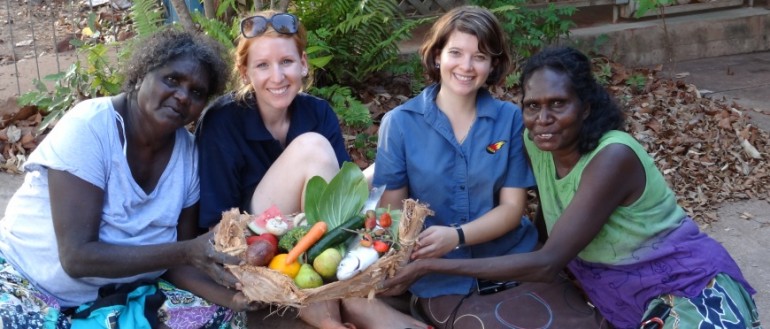Confronting the scourge of Indigenous Suicide
In June this year, the Menzies School of Health Research welcomed the Australian Government’s decision to appoint it to help develop the nation’s first National Indigenous Suicide Prevention Strategy.
The project’s Team Leader, Associate Professor Gary Robinson, says the Indigenous Suicide Prevention Strategy will be an essential step towards addressing the high rates of Indigenous suicide across the country.
Here, he outlines why:
It’s difficult to conceive of a sadder situation than that of young people in their physical prime, choosing to take their own lives.
Reports in our newspapers and on our television screens document the fact that Indigenous communities across the Northern Territory (NT) – already beset by a range of complex and troubling problems - suffer more than their share of these tragic deaths.
I recently worked with my colleagues at Menzies School of Health Research on a report on the suicide of young people in the NT which found a significant increase in the rate of suicide amongst Indigenous people in the NT over the past four decades.
Rates of suicide among young people in the NT are well above those for adults, and above national rates for all young people.
But statistics are abstract in nature. It is the anecdotal evidence of young children imitating what they have seen in ‘hanging games’, reports of distressed parents threatening suicide as they attempt to exert control over their children, or of young adults whose self harm appears as a symbol of distress for their peers, which really serves to capture the deep impacts of suicide within families and communities.
There is widespread public concern about the tragedy of suicide, particularly amongst young and vulnerable Indigenous Australians. There is a growing belief that ‘something must be done’.
A fundamental principle of the Menzies research ethos is that scientific study should be translated into practical benefit for the community. As a team from Menzies’ Centre for Child Development and Education prepares to undertake a groundbreaking national consultation to seek answers to the devastation of Indigenous suicide, this principle has never mattered more.
We owe it to the bereaved parents who struggle for answers. We owe it to those little brothers and sisters who are suddenly and brutally denied the support of their older siblings, as they strive to make their way in the world. And we owe it to the wider community, which is making brave choices to invest resources in the quest to ‘close the gap’ in Indigenous disadvantage.
As a community we need better information about Indigenous suicide prevention. We need to be able to assist Indigenous people to build strength and resilience in their communities. And we need to provide better services for people who are at risk of harming themselves. In short, we need to find out ‘what works’ in preventing suicide, and do more of it.
The Federal Minister for Mental Health Mark Butler has appointed Menzies to help the Australian government to develop the first National Aboriginal and Torres Strait Islander Suicide Prevention Strategy.
A series of community forums in cities and towns across the country during July and August of this year will culminate in a national workshop in September. These discussions will provide the ground work for the development of a national strategy.
The government is particularly interested to hear the voices of Indigenous people across the nation as we search for answers to a problem which visits quiet devastation on remote Indigenous communities, regional centres, and major cities across Australia.
Every effort will be made to acknowledge and demonstrate respect for local Indigenous communities wherever consultations are held. Particular care will be taken to ensure that professional help will be available for those who attend the consultations, as they deal with the trauma of discussing the loss of their loved ones.
The result of this critically important project will be much more than another glossy government report. The team at Menzies will be aiming to build stronger communities, protect vulnerable young lives, and alleviate human misery across the country.
A clear and cohesive National Aboriginal and Torres Strait Islander Suicide Prevention Strategy will assist governments to set priorities to ensure that the right kinds of services are in place where they are most needed: by families in need of help and support, by communities seeking to take action, by agencies seeking to better target their work. With a concerted approach involving community action and action across services and agencies, the spectre of suicide will diminish, and communities will grow stronger and more productive.
It’s difficult to imagine a more practical and constructive use for research.

